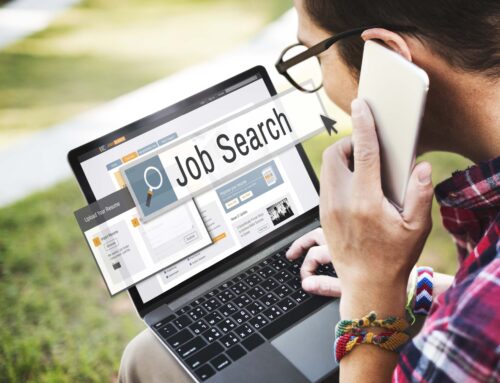‘There are decades when nothing happens; and there are weeks when decades happen’
LENIN
So there was a Millennium Bug after all – just twenty years late. And rather than being a computer glitch, it turned out to be an actual bug – a living virus. In 1999 it was feared that at the stroke of midnight on New Year’s Eve, shops and restaurants would be plunged into darkness, cars would stand immobilised, and fleets of aeroplanes would be rooted to the tarmac. Two decades on, it all sounds rather familiar.
For schools, colleges and universities, the impact of COVID on young people’s education has yet to be quantified, but when it is, it is likely to be significant and long-lasting. According to UNESCO, since March, 188 counties have implemented nationwide school closures, in effect, sending home 89.5% of the world’s student population.
Equally dramatic has been COVID’s impact on the world of work. Academics have long speculated on whether we were about to witness the rise of the Fourth Industrial Revolution, while remaining reluctant to commit themselves to dates. We now know exactly when it started: 23 March 2020 – the day the UK went into lockdown.

The future just happened!
But COVID hasn’t changed the world of work; it’s turbo-charged its evolution, fast-forwarding the introduction of innovations which without the pandemic would have taken years to materialise. Concepts such as remote organisations, working from home, flexible work patterns, and digital platforms have been around for years. It took the pandemic to drive them into the mainstream. Between March and April 2020, eight-out-of-ten firms across the world had implemented flexible working arrangements. Those that hadn’t were working on it.
Gradually, it’s becoming apparent that the mass migration to working from home has set in train a sequence of unintended consequences that could transform the working lives of millions. Prior to the lockdown, firms like Google and Virgin were lauded for their futuristic flexible working policies. Now, everyone’s at it. Even the royals are wfh.
So successful has the shift to homeworking been that many office workers will probably never step foot in an office again. Who needs expensive city centre premises if staff are just as productive working from home in their pyjamas? According to the Washington Post, up to 300 million office workers worldwide could do their jobs perfectly well from home – a fact unlikely to be lost on cash-strapped bosses and chief finance officers.
Not that there’s anything particularly revolutionary about working from home. Even in the most conservative organisations, it’s been on the cards for years.
It’s the white-collar, middle-class job market where the real revolution is about to take place.
Zombie apocalypse
In 2018, a study by the Bank of England predicted that within the decade, up to 15 million UK jobs would be replaced by technology – specifically, Artificial Intelligence (AI) and robotics.[1]
The study cited research by the University of Oxford and the professional services firm Deloitte that argued that within twenty years, 35% of jobs in the UK were at high risk of being replaced by computerisation. These were the jobs which in my own research I have termed ‘Zombie Jobs’ – jobs that are still with us, but which are gradually being replaced by technology.[2]
Many of the jobs most likely to be ‘zombiefied’ are traditional ‘white-collar’ graduate jobs – accountants, tax analysts, pharmacists, surveyors, librarians, and many others. Indeed, employers were already planning for a future of increased technology. On the plus side, it’s estimated that up to 13.6 million new jobs will have been created, mostly in software, engineering, design, maintenance, support and training. Even so, that leaves a deficit of over 9 million jobs. Millions of other jobs will remain, but find themselves permanently hollowed-out by technology. The pandemic is likely to have accelerated this process, prompting businesses to bring forward their plans to invest in AI and robotics. According to the then Governor of the Bank of England, 90% of chief executives were confident that technology would replace a sizeable number of jobs in their organisations.[3]
Advising for the future
The impact of COVID on job markets raises numerous challenges for teachers and careers advisers whose role involves educating young people for the world of work. With job markets set to decline in the months and years ahead, acquiring the skills, knowledge and attitudes needed to remain employable will be more important than ever. As the saying goes, in a volatile job market, to be employed is to be at risk. To be employable is to be secure.
Employability in a Post-COVID world
Below are my three tips to help young people develop employability skills in this new, post-pandemic world of work.
- E= Q + WE + S x C
In 2006, Trotman published my book, ‘The Graduate Jobs Formula’, which was based on hundreds of conversations and interviews with graduate recruiters and revealed the ‘formula’ for graduate employability. In a post-pandemic world, this formula still applies: to be employable (E) students require qualifications (Q), work experience (WE), skills (S), and most critical of all, contacts (C).
To be employable in the post-pandemic job market, it’s essential that students supplement academic qualifications with work experience from which they will develop a range of skills and contacts. It’s the task of education providers to make sure these opportunities are available.
Included in our careers curriculum lesson bank, part of the Indigo Careers digital platform.
Year 10 – Work experience: introduction and diary
Year 10 – The importance of a positive attitude in the workplace
Year 10 – Work experience debrief – what did I gain?
- Enterprise skills – the key to the future
The disruption caused by the pandemic to organisations around the world will reshape future career opportunities. The job for life was already in trouble, even before COVID; now, it’s rising to the top of the endangered species list. Those who have adapted best to the new world of work are those who a) can provide solutions and services to a newly home-based population; b) are able to trade on line; c) are not reliant on one income stream. As the economy moves into recovery phase, these are the people who will thrive. These are the people who our students should learn to emulate.
Year 10 – Competition for jobs
Year 11 – Job hunting: some successful approaches
Year 12 – Employability
- The importance of wellbeing
For many young people, the past few months have been the most unsettling and worrying of their lives. Plans and aspirations have been put on hold. Maintaining wellbeing and mental health is essential and strategies such as the ‘Five Ways to Wellbeing’ model developed by the New Economics Foundation can be invaluable.
Year 12 – Managing challenges
Year 12 – The philosophy of ‘success’
[1] You can see a TED talk I gave on this at; https://www.ted.com/talks/paul_redmond_zombie_careers_will_you_lose_your_job_to_ai
[2] For an overview of the phenomenon of Zombie Jobs, see: https://www.linkedin.com/pulse/attack-zombie-jobs-dr-paul-redmond/
[3] Among their employees, however, the same proportion believed their own jobs would remain untouched.

Dr Paul Redmond is director of Student Experience and Enhancement at the University of Liverpool and the author of The Graduate Jobs Formula (Trotman).






